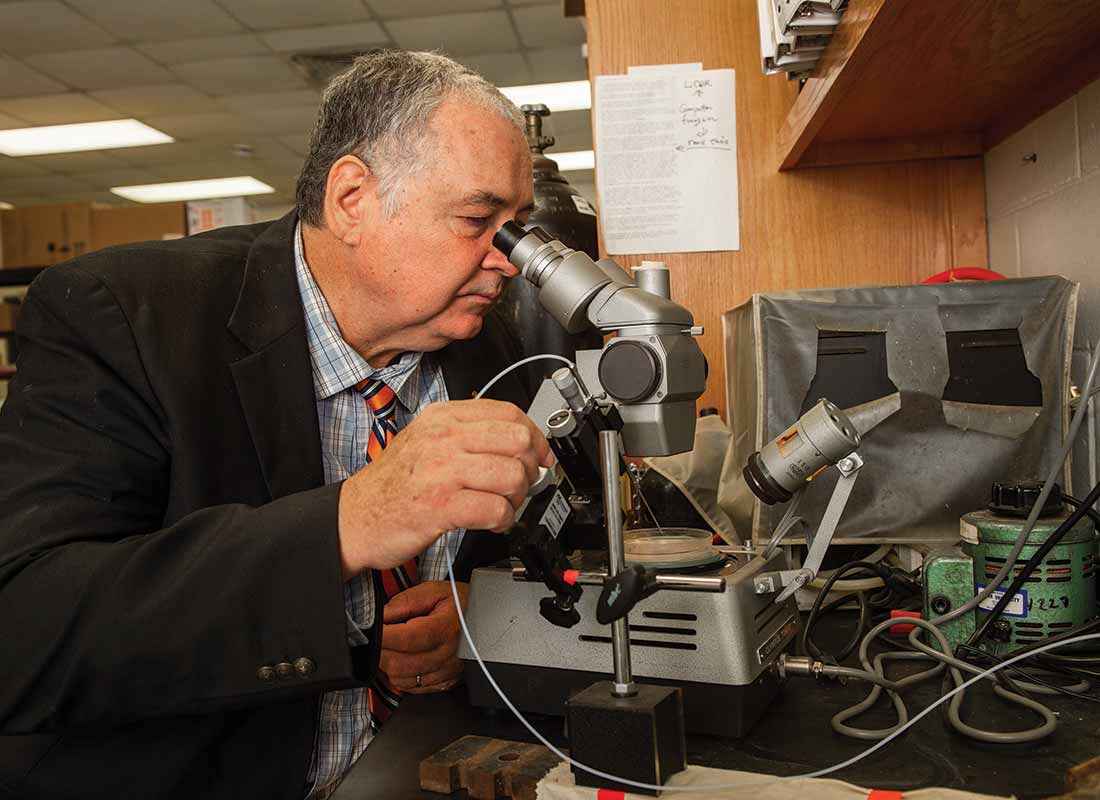Research and Scholarship Achievement Award, Dr. Rex Dunham
Article body
Auburn University’s Research and Economic Development Advisory Board established the Research and Scholarship Achievement Award in 2014 and awards it to recognize high-quality, competitive research and scholarly activity and exceptional efforts to advance Auburn’s research and scholarship mission. The recipient of the annual award receives a $25,000 grant to further his or her research.
Dr. Rex Dunham, Butler-Cunningham Eminent Scholar in Agriculture and Alumni Professor in the School of Fisheries and Aquatic Sciences, has taught at Auburn University for 41 years. He is recognized for his extensive research and mentoring of students in the genetic improvement of catfish. His specific research interests are focused on the areas and related areas with catfish genetics involving selective breeding, hybridization, gene transfer, gene mapping and genomics and reproductive physiology. Dunham was the first to produce a transgenic fish in the United States and says that his proudest professional moment was when the catfish industry adopted the Auburn-developed hybrid catfish technology. He has taught and mentored hundreds of students both at Auburn and in other countries where Auburn Fisheries is teaching and training students and others in aquaculture technologies. In addition to extensive work benefitting the catfish industry, Dunham has conducted population genetics research on native sport fish populations, influencing genetic management policy of various natural resource agencies in the South. He continues to advance the field of genetic reproductive control of fish, with the goal of having traditional and molecular genetic technologies used to improve aquaculture and fisheries management while ensuring the lowest possible environmental impact. During the course of his career, Dunham has obtained over $20 million in research funding and published nearly 400 scholarly works, including three manuscripts in the journal, Nature.
Auburn University is a nationally ranked land grant institution recognized for its commitment to world-class scholarship, interdisciplinary research with an elite, top-tier Carnegie R1 classification and an undergraduate education experience second to none. Auburn is home to more than 30,000 students, and its faculty and research partners collaborate to develop and deliver meaningful scholarship, science and technology-based advancements that meet pressing regional, national and global needs. Auburn's commitment to active student engagement, professional success and public/private partnership drives a growing reputation for outreach and extension that delivers broad economic, health and societal impact. Auburn's mission to educate, discover and collaborate drives its expanding impact on the world.



